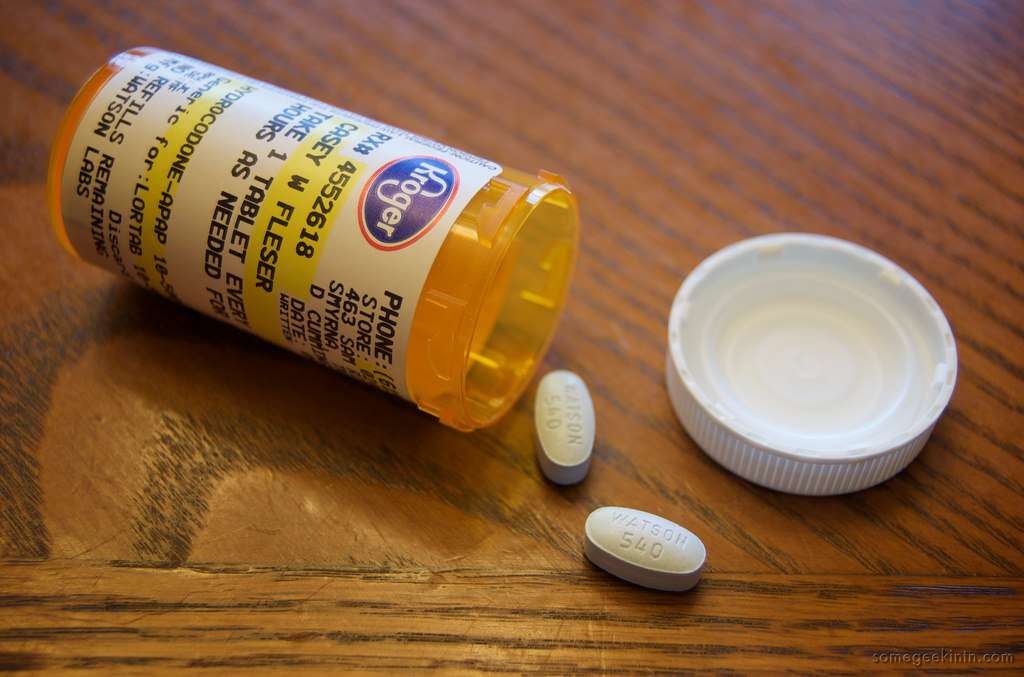Veterans Lives, and All of our Lives, Made More Difficult and Painful Thanks to Government's War on Painkillers
Washington Post reported yesterday on more grim news arising from an irrational fear of painkillers on the part of medical and bureaucratic professionals, focusing on the harm to veterans.

Thanks to busybodism on the part of the Drug Enforcement Administration, any vet getting hydrocodone-based painkillers via the Veterans Administration now need to go back to their doctor monthly to get more medicine. (So do the rest of us civilians, but this Post story focuses on the perhaps more sympathetic case of veterans.)
This is bad, obviously, for those far away from their doctors and those fighting through already very busy doctor's schedules.
An excerpt on some of the human costs of these policies designed to save us from ourselves, or from the demon of prescription opiods:
some veterans say they have come to depend on these painkillers to function and now, unable to get a timely renewal of the prescription, are suffering withdrawal symptoms that feel like a panic attack and the flu at the same time.
Craig Schroeder was injured in a makeshift-bomb explosion while serving as a Marine corporal in the "Triangle of Death," a region south of Baghdad. He suffers from traumatic brain injury, which has affected his hearing, memory and movement, and from pain related to a broken foot and ankle and a herniated disc in his back. He has been on a steady regimen of opioids.
But after the DEA regulations were put in place, he was unable to get an appointment to see his doctor for nearly five months, he said. He stayed in bed at his home in North Carolina much of that time.
"It was a nightmare. I was just in unbearable, terrible pain," he said. "I couldn't even go to the ER because those doctors won't write those scripts."…..
A retired staff Army sergeant who served in Iraq, who spoke on the condition of anonymity for medical privacy reasons, said he can't drive because of shrapnel in his femur and pelvis. He takes the bus nearly two hours for "a one-minute consult" to get his medications. He has been taking them for more than nine years and has never had an addiction problem, he said.
Mike Davis, a retired Army corporal, said he shattered his left arm from the elbow to the fingertips when he fell off of a Pershing missile during maneuvers in Germany in 1979. Over the years, he has had six surgeries.
After the last one, in 2003, he was prescribed opioids and said he has been on them since. Davis, who now works as a social worker in Illinois, said he feels lucky to have found a combination of painkillers that works for him.
"It's just insulting to the veteran to assume they are abusing these drugs," said his wife, Linda Davis, who works as his personal patient advocate. "I'm fully aware that people doctor-shop, some docs overprescribe. But I think they need to realize that there's a real difference between addiction and dependence."
In our culture racked with opiophobia, wanting, or even needing for a satisfactory life, a particular kind of drug is demonized as dangerous addiction. Unlike, say, "dependence" on heart or cholesterol medicine, "dependence" on these types of painkillers is something bureacrats use as an excuse to consume our tax dollars to make our lives more difficult and painful.
Jacob Sullum's classic 1997 feature on the (sadly, ongoing more than ever) war on painkillers, "No Relief in Sight."


Show Comments (84)